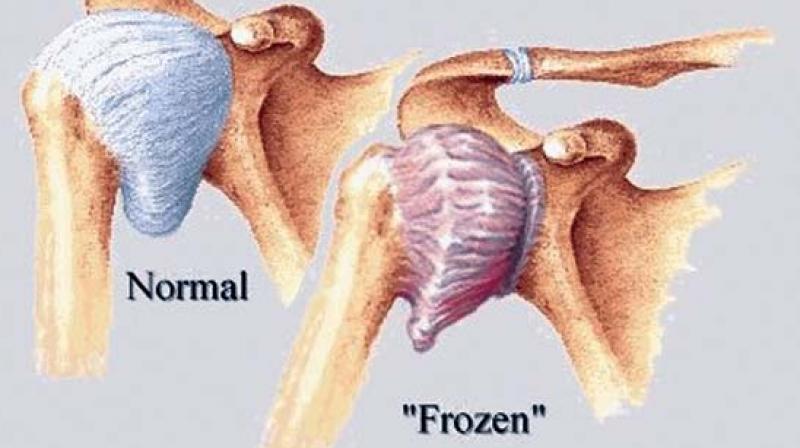Did you wake up one day and notice an acute pain in your shoulder? It feels like torture every time you move it. Therefore, you chronically reduce the range of motion to avoid any discomfort. You successfully reduce the pain, but then your shoulder is constantly stiff. Moving your arm becomes more difficult and painful. Sleep worsens the condition, sometimes you can’t even have a good snooze. Eventually, your shoulder begins to thaw out, and starts to improve (1).
This is called frozen shoulder, also known as adhesive capsulitis (1). The risk of developing frozen shoulder increases if you limit your arm from moving to begin with. This may stem from an injury, recovering from a medical procedure, have a pre-existing condition such as shoulder tendinitis (2), or are generally immobile. Signs and symptoms typically begin gradually, worsen over time then resolve. The whole process takes about 1-3 years (1)!

Certainly, if you are suffering from frozen shoulder, seeking medical attention is best. Hoping the issue will resolve on its own will only delay recovery. Our clinic is proud to offer professionals who know exactly how to deal with frozen shoulder. A crucial therapy to consider is physiotherapy.
PHYSIOTHERAPY
A physiotherapist conducts a full assessment to determine what kind of treatment approach is best fo you. Along with varying techniques, your therapist may administer manual therapy this includes specific joint mobilization. This treatment is a skilled passive technique preformed at varying speeds and force to improve range of motion within the joint (3).
Physiotherapists are trained professionals who understand joint mechanics, tissue histology, and muscle function. Applying manual therapy techniques in the early stages of injury, influences the extensibility of scar tissue. Thereby, reducing the development of restrictive adhesions. As a result, this provides an opportunity for the neuromuscular mechanisms to restore the body to working order (4).
Patients who take advantage of physiotherapy for their frozen shoulder, reduce the length of their condition. On average, recovery is about 6 months. The median therapy spans about 4 weeks in total (5). Needless to say, each injury is different. Having your physiotherapist administer a physical exam to understand your particular case is the first step.
In conclusion, don’t suffer with the pain of a frozen shoulder. Call today to book an initial assessment with an experienced physiotherapist.